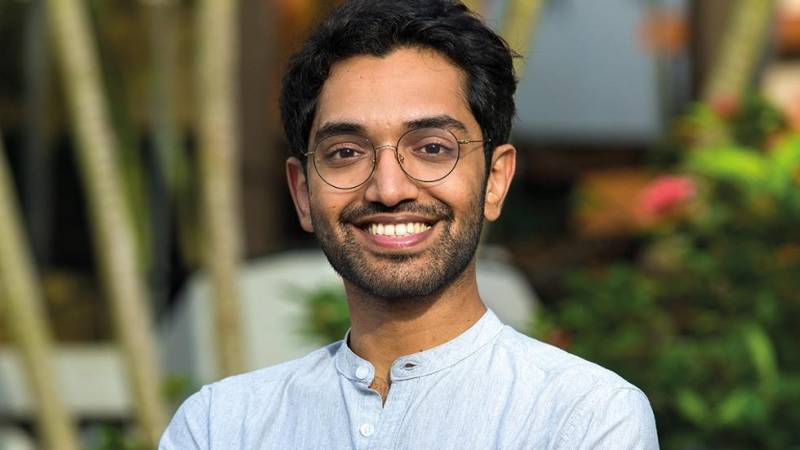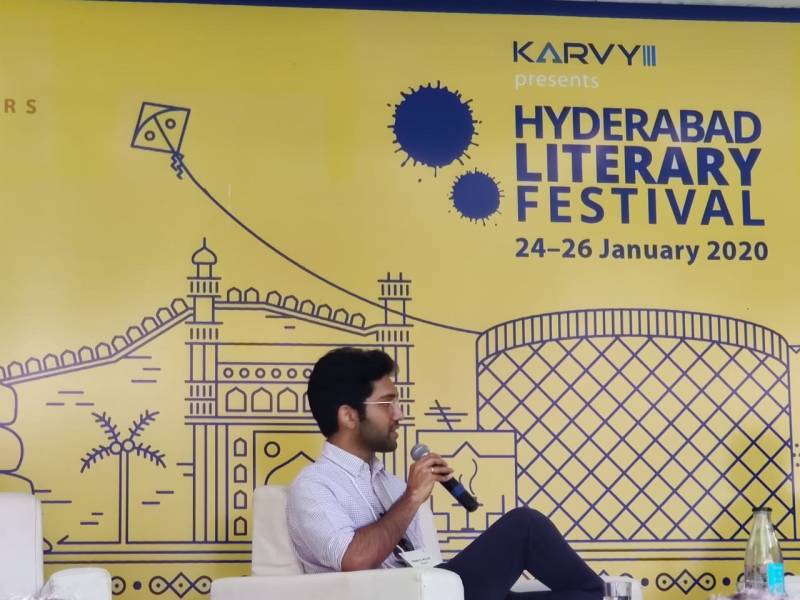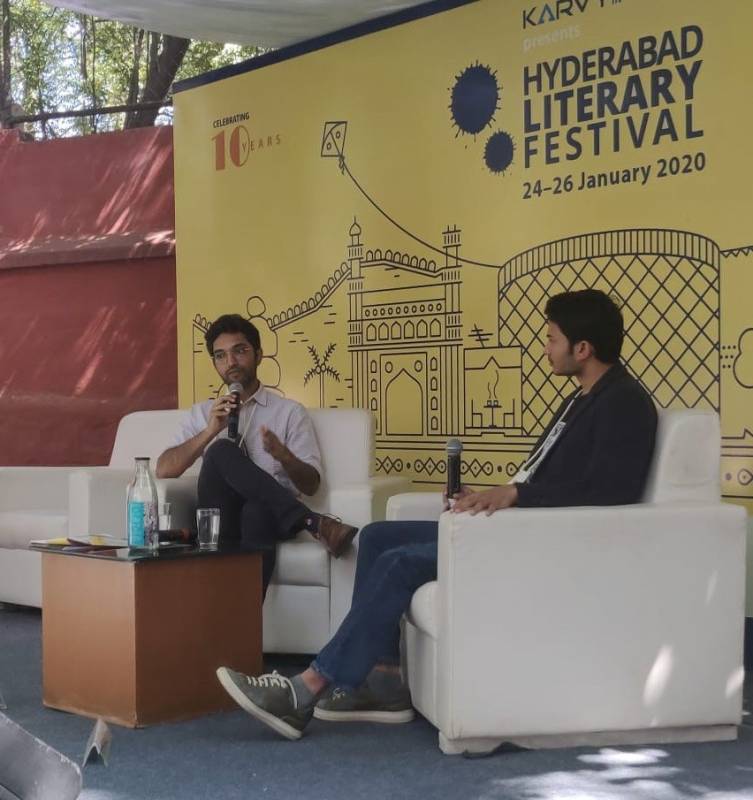Even in 21st century, history is written through the eyes of men: Manu S Pillai
By Amritha Mohan Published on 25 Jan 2020 6:08 AM GMT
Hyderabad: Young historian Manu S Pillai was quite a crowd’s favourite at the Hyderabad Literary Festival 2020. Even as he left the dais after a 40-minute talk, the young crowd whooped and cheered for the writer.

As opposed to usual historians, whose books seldom make their way towards the youth, Manu S Pillai is different. After the resounding success of his book ‘Ivory Throne’ (2015), he went on to write two more books, ‘Rebel Sultans’ and ‘The Courtesan, the Mahatma and the Italian Brahmin’. While the former deals with the history of erstwhile Travancore in Kerala, 'Rebel Sultans' deals with the history of the Deccan. His latest book is a collection of story-nuggets from Indian history, presented in its most palpable, easy consumable form, which perhaps explains why many youngsters buy his books.
‘History is written through the eyes of men’
Speaking about Indian history in general, the soon-to-turn-30 writer is of the opinion that even in the 21st century, history has been majorly written through the eyes of men. “We are in the 21st century and we still write grand narratives about the past entirely through the eyes of men. You got a few women here and there. You sometimes deify them. But you forget that there were women of ambition, there were women of cunning, there were women of creative talent. Indian history is peppered with them and we haven’t been looking at them the way we should and giving their due,” said Pillai.
‘We don’t get these stories from textbooks’
Pillai is known for presenting Indian history in a manner that is accessible to the lay reader. Did he purposefully want to make it that way? “I didn’t really have a plan. But I was quite amused to know about my great grandparents who led interesting lives. They were human beings like you and me, and I wanted to know more about them. I felt that their stories had to be told, but also in a way that would make the reader turn the page because we usually do not get these stories from textbooks.”
On contradictions and appropriations in Indian history
History is not only fascinating but at times, it may shock us, says Manu S Pillai. For instance, once there was the Maratha prince of Thanjavur called Shahu, who was Shivaji’s nephew. In a Telugu play that he wrote, he criticises the caste system, parodies Brahmin superiority, and even talks about beef-eating. “If a writer wrote this today, they would probably be behind bars. Earlier, there was a sense of cultural confidence, or the ability to laugh at yourself, which is somewhat lost today,” said Pillai with a chuckle. He also added how Persian was the language used to communicate, even among royal families as they spoke with the British. “We would probably be having this conversation in Persian or even French if it were not for the British.”

